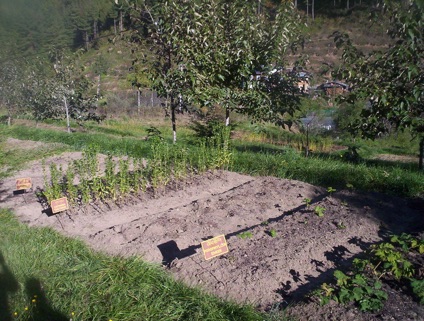Seven principles for ending hunger:
Development of research
Fourth principle: Development of research
Development of research on a sustainable and accessible agricultural technology
Agricultural research has been more concerned with increasing agricultural production than with finding ways in which agriculture could contribute to reducing hunger and poverty as well as slowing down the processes of climate change. .
One consequence of this orientation has been the development of technological solutions adapted to medium or large-scale farms that are able to purchase the required equipment and inputs that these solutions require, but which are out of reach for small-scale and subsistence farmers, especially to those who are in a situation of chronic hunger and poverty. These technologies have been the basis for the development of a vast industrial and chemical complex upstream from agriculture and required huge investments in infrastructure, in particular for irrigation, that benefit only to a minority of producers [read].These solutions produced by research have proven not to be sustainable as they have contributed to the degradation of land and water resources and a reduction of biodiversity. They also have not solved the world hunger issue and, in the countries that apply them in the most advanced way, yields have reached a maximum and even, in some cases, have started to decrease.

The question is now to reorient agricultural research and have it concentrate on the production of technical solutions accessible to all producers and that will allow a transition towards to a more sustainable agriculture, while assuring an agricultural production sufficient to meet future world demand. These technical solutions will also need to help increase production in sub-optimal conditions, particularly for rainfed agriculture. Examples of such research exist, even if today they are still the exception rather than the rule. Activities that come to mind include research conducted on agroforestry, sustainable rice intensification (SRI), push-pull and integrated pest management (IPM). These developments emphasise management aspects of agriculture rather than the use of external inputs making them more accessible to poor producers while at the same time reducing pressures on natural resources. The technologies developed are based on location-specific knowledge and propose solutions that are adapted to specific situations, not general solutions that do not respond to the diversity of ecological conditions.
The development of this type of research will require:
•A decentralised approach, close to producers and that factors in the variety of argo-climatic, social, economic and cultural conditions
•The mobilisation of public resources and institutions to ensure the financial independence of research conducted from commercial firms who understandably seek in priority to promote the greater use of their products (equipment, inputs, etc.)
•The involvement of smallholders, and particularly of women, with research organisations through their associations to ensure the relevance of research conducted to the specific constraints they face.
(October 2013)
--------------
For more information:
•Sustainable rice intensification (SRI) (Cornell University website)
•What is Integrated Pest Management (IPM)? (University of California website)
•Push-pull, ICIPE - African Insect Science for Food and Heath
•World Agroforestry Center (ICRAF)
Last update: October 2013
For your comments and reactions: hungerexpl@gmail.com
Back to Seven principles for ending hunger
